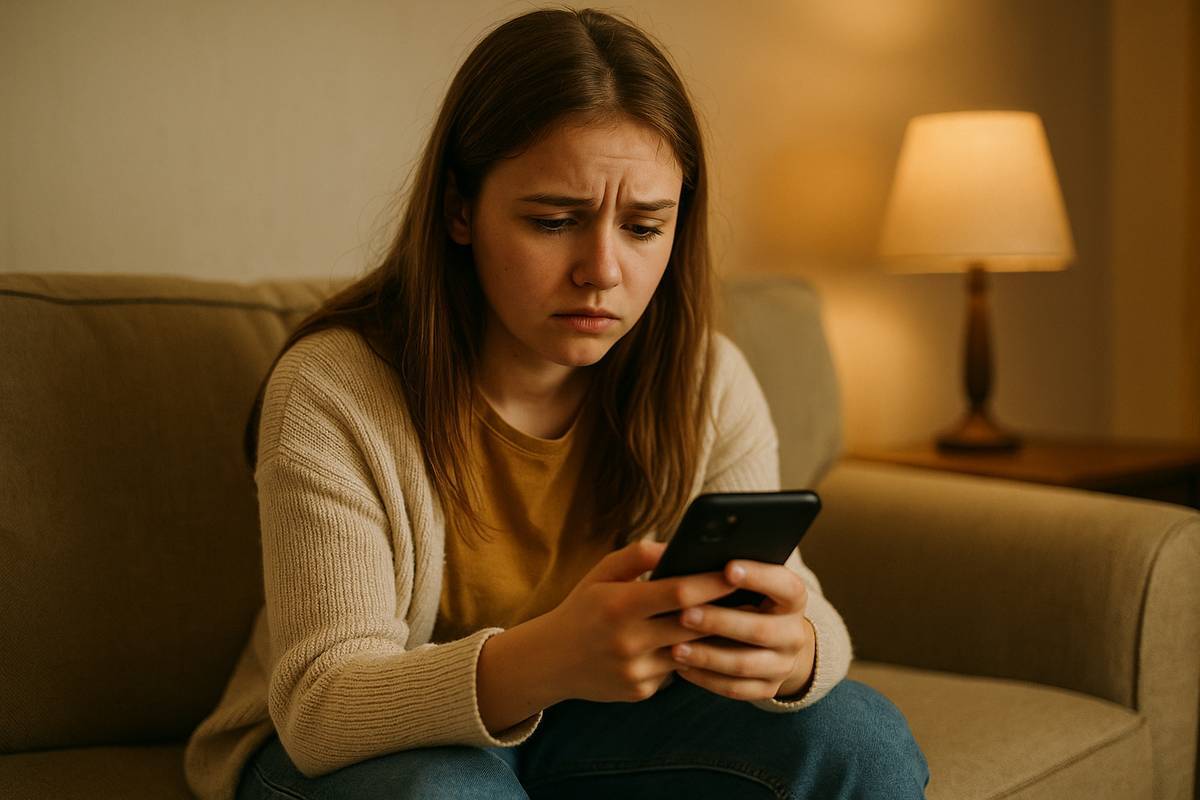When the news never stops: helping our teens untangle the noise
There are days it feels like our teens are living inside a 24 hour news ticker. A notification flashes about another crisis, a celebrity scandal, a new trend they “hair have to try.” My old Walkman never moved this fast. It’s no wonder the kids look tired — they’re absorbing more headline‑level chaos in a single evening than we did in a week. We can’t turn the world off, but we can help them navigate it without losing themselves.
A recent UNICEF‑led study on youth mental health paints a sobering picture. Out of more than 5,600 young people surveyed worldwide, 60 percent said they feel overwhelmed by the news. Nearly two‑thirds reported feeling more overwhelmed by global events than by things happening in their own country or community. Dr. Zeinab Hijazi, UNICEF’s global mental‑health lead, notes that overlapping geopolitical conflict, climate crises and economic uncertainty weigh heavily on young minds. If you’ve been watching the Middle East with a knot in your stomach, imagine being sixteen and hearing about war, famine and climate disaster every time you pick up your phone. As parents, it’s heartbreaking to realize many teens are quietly internalizing this stress.
It doesn’t help that much of their “news” comes from bite‑sized videos and sensational posts. Consumer research firm Attest found that 43 percent of Gen Z rely on social media as their primary news source, and TikTok alone feeds the daily news diet of 21 percent. Clinical psychologist Dr. Shaima Al‑Fardan warns that constant scrolling can isolate kids from real‑life social interactions and reinforce negative emotions. She also points out that teens’ brains are still wiring up the parts responsible for critical decision‑making, so an endless stream of headlines and influencer opinions can leave them more reactionary and less resilient. It makes sense: if you’ve ever watched your teen spiral over a sensational clip, you know how quickly the internet can amplify fear.
Complicating matters further is the difference between screen time and screen addiction. Research released in June by Columbia University and Weill Cornell Medicine tracked 4,300 children from age 8 over four years and found that addictive use of social media, mobile phones or video games — the kind that interferes with schoolwork and home responsibilities — is associated with worse mental health, including anxiety, depression and even suicidal thoughts. About 40 percent of kids showed consistently high or increasing addictive use of social media. Psychiatrist J. John Mann warns that these kids experience cravings they struggle to control and urges parents to seek professional help if they notice these patterns. Lead author Yunyu Xiao says policies should focus less on generic screen‑time limits and more on identifying and addressing addictive patterns. In other words, simply unplugging the Wi‑Fi at 9 p.m. may not cut it if our teens are using screens to numb themselves or escape.
So what do we do? For starters, let’s stop blaming kids for being “glued to their phones” and remember that they’ve been handed a world of crises with zero instructions. Make it a habit to talk about what’s happening, not just scold them for scrolling. Ask how a headline makes them feel. Offer context and remind them it’s okay to step back. Share reputable sources together and practice questioning the credibility of that flashy influencer video. And when you sense your teen is using their phone to avoid responsibilities or social interaction, treat it like any other health concern: address it with compassion, set clear boundaries and seek support.
Above all, let’s normalize talking about mental health. The UNICEF study found that 40 percent of young people feel stigmatized when they speak openly about mental health, and only half know where to find support. If our kids can’t tell us when they’re drowning in doomscrolling, how can we help? Break the generational pattern of “tough it out” and let them see you taking your own breaks from the news, too. Our teens don’t need us to have all the answers — they need to know we’re in the mess with them, asking questions, setting limits and reminding them there’s a world beyond the screen.
Sources: UNICEF‑led study on Gen Z news consumption and mental health (Arab News, July 2025); “Addictive Use of Social Media, Not Total Time, Associated with Youth Mental Health” (Columbia University Irving Medical Center, June 18 2025).







Leave a Reply
You must be logged in to post a comment.